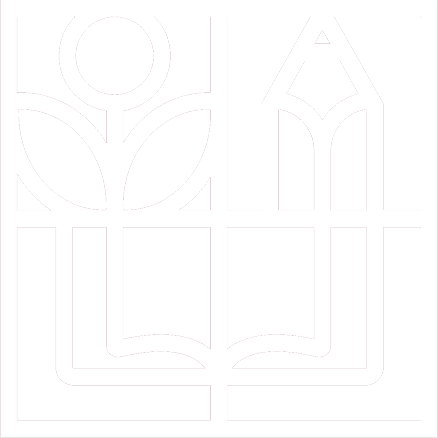How we promote oracy
Oracy in the classroom
We promote skills from the Oracy Framework (see below) in all lessons.
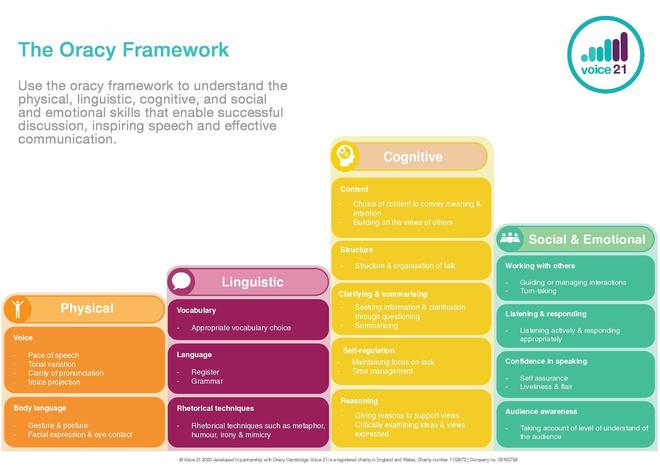
Here is a child-friendly version of the framework:
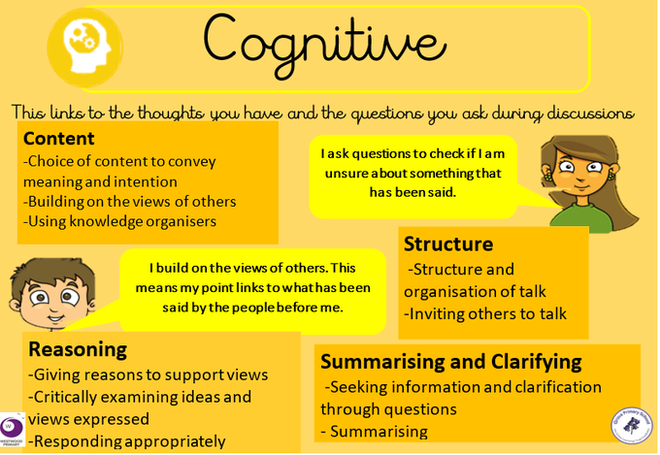
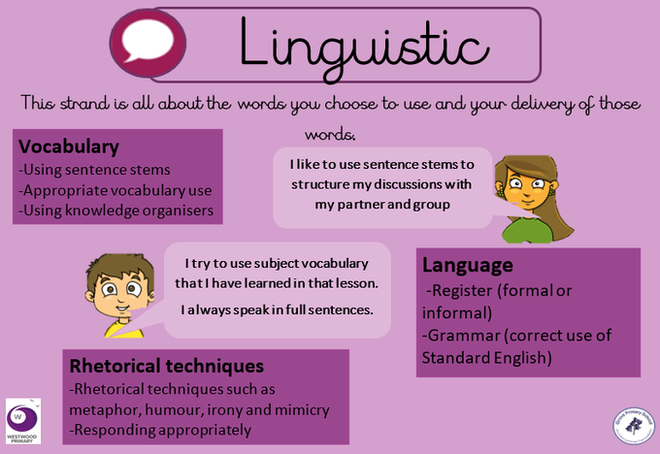
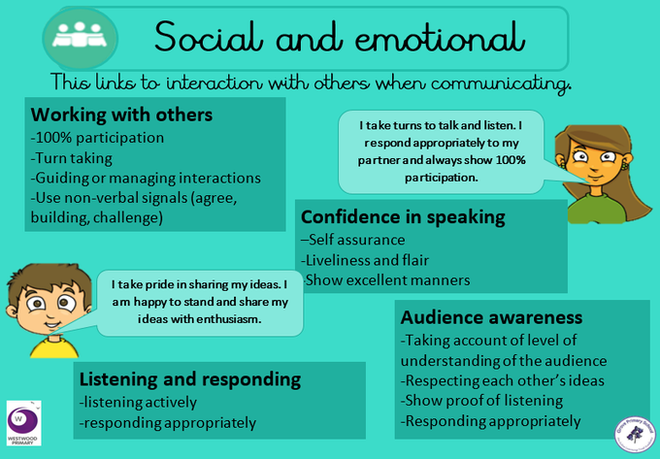
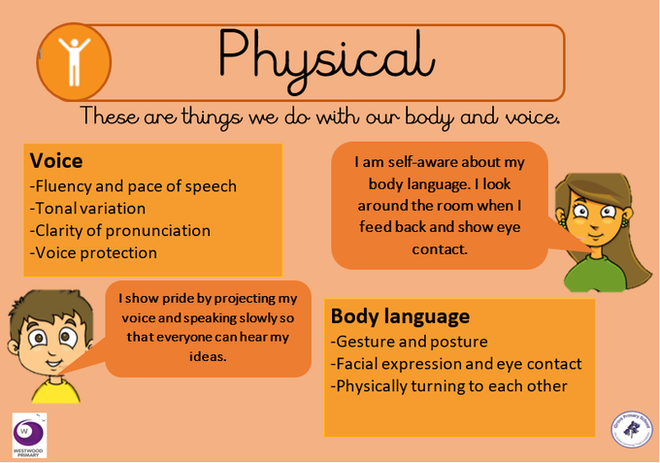
Here are some examples of activities that are used to develop oracy in our school:
- Setting ground rules for speaking and listening in class, such as putting your hand up before speaking, waiting to be chosen, and not interrupting each other.
- Presentations on a specified subject, or a subject of their own choosing. These could be individual presentations or in pairs or small groups, in front of their class or the whole school in assembly. At the lower end of the school, this is often ‘show and tell,’ while older pupils might make a topic-based presentation.
- Discussions as a pair, small group or whole class, for example about religious beliefs, story plots, or predicting the outcomes of experiments.
- Hot seating: a drama technique where one child sits in the ‘hot seat,’ and the other children ask them questions to answer in character.
- Exploring a text through performance – not just re-enacting what actually happens in the book, but also acting out what characters might do or say in a particular situation.
- Structured debates, with one group of pupils for and another against a certain topic or question, such as, ‘Is it right to bully a bully?’
- Putting on year group/ class assemblies attended by the rest of the school and often parents.
- School council meetings, where council members collect questions and concerns from other pupils and present them to their fellow councillors and teachers.
- Group work, where communication and listening to each other are essential.
- Older children being play leaders for younger children at breaktimes, explaining the rules of a game and making sure everyone plays correctly and fairly.
- Circle time: a class discussion, often weekly, where everyone sits in a circle and talks over issues affecting the class, such as too much talking during lessons, or bad behaviour in the playground. This encourages oracy skills like expressing opinions, turn-taking and respecting others’ views.
- Plays/ performances: end of year 6 performance/ EYFS & KS1 nativity/ Christmas concert
